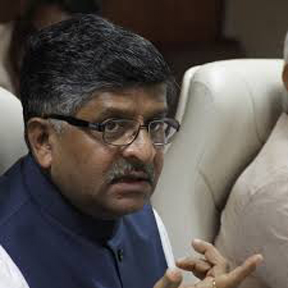 NEW DELHI: As the government prepares to bring a fresh bill in Parliament to repeal archaic laws, the Law Commission today recommended revoking 72 obsolete statutes, saying there is an “urgent need” to ensure that the legal structures are responsive to challenges of changing times.
NEW DELHI: As the government prepares to bring a fresh bill in Parliament to repeal archaic laws, the Law Commission today recommended revoking 72 obsolete statutes, saying there is an “urgent need” to ensure that the legal structures are responsive to challenges of changing times.
One of the laws — Bengal District Act — recommended for repeal dates back to 1836. Several other laws recommended for revoking belong to period dating from 1838 to 1898.
In its ‘interim’ report to Law Minister Ravi Shankar Prasad, the Commission said it will further study 261 more statutes “with a view to providing a firm recommendation for repeal of obsolete statutes and those inconsonant with modern times”.
The law panel said it would complete its study in “installments” and submit a number of volumes to the government for necessary action.
“The government led by Narendra Modi is keen to repeal obsolete laws. Already a bill seeking to repeal 32 such Acts is pending in Parliament. We will take up the issue of repealing more such obsolete laws in the right earnest in the next session of Parliament,” Prasad told PTI after receiving the report.
The panel said there is a need to identify laws which have become obsolete “and as such keeping them on statute books is causing unwarranted burden on the system”.
It said while studying the issue, the Commission found that a large number of Appropriation Acts passed during the past several years in reality have lost meaning but continue to be part of the statute books. (More) PTI NAB
“It is common knowledge that Appropriate Acts are intended to operate for a limited period of time….Those Appropriation Acts that are older than certain date, say 10 years, may be repealed. This itself would result in the repeal of more than 600 laws,” the report said.
It said Australia has a system where Appropriation Acts are repealed automatically as there is a ‘sunset clause’ attached to them.
The panel said while certain laws recommended for repeal have to be removed from the statute books by the state governments, some will have to be revoked by Parliament.
While the Law Ministry had mandated the Law Commission to recommend laws that can be repealed, Prime Minister Narendra Modi had last month constituted a separate committee to identify “obsolete” laws which, he believes, hamper governance by creating “avoidable confusion”.
The newly constituted Committee will examine all Acts recommended to be repealed by the Committee on Review of Administrative Laws which had been appointed by Atal Bihari Vajpayee government in 1998.
Out of the 1382 Acts recommended for repeal by that Committee, only 415 have been repealed so far.
The NDA government has already introduced a bill in Lok Sabha during the Budget Session to repeal 32 Acts.
The Repealing and Amending Bill, 2014 seeks to remove certain Amendment Acts and Principal Acts from the statute books as they have outlived their utility.
This is the first time since 2001 that such an exercise is being undertaken by the Law Ministry.
The Amendment Acts which are sought to be repealed through the Bill include amendments to the Representation of the People Act, Marriage Act, Divorce Law and Anand Marriage Act and Evidence Act.
Two of the stand alone Acts which will also be repealed through the Bill are Foreign Jurisdiction Act, 1947, and Sugar Undertaking (Taking Over of Management) Act.–PTI






